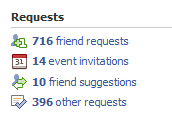 The SEO community is becoming increasingly frustrated with Digg, and it’s no wonder why. I have the domain www.diggworthy.com under my ownership. I understand that Kevin has asked us nicely to not use the Digg name, and I’ve respected his wishes thus far, but I’m curious to know if it takes a “clone” site (that is not affiliated with the Digg at all) to get the true quality content where it belongs.
The SEO community is becoming increasingly frustrated with Digg, and it’s no wonder why. I have the domain www.diggworthy.com under my ownership. I understand that Kevin has asked us nicely to not use the Digg name, and I’ve respected his wishes thus far, but I’m curious to know if it takes a “clone” site (that is not affiliated with the Digg at all) to get the true quality content where it belongs.
Why am I sharing this information with you? I’m as frustrated as Kim and I want something done about the quality of Digg’s service.
Despite my dissatisfaction with Digg, I’ve been using it more often recently. As much as I don’t want to, it seems to be the leading social news site. However, I think that needs to change. I’ve been observing the Digg user base from a comments, blog submissions, and burial perspective and have my own opinion on Digg users. Here’s how I’ve categorized them:
- Diggoodytwoshoes: The Digg patriots, the brown nosers, the kiss-ups, the sycophants. You get the idea. This group consists of anyone who disagrees with any anti-Digg content despite the truth in whatever anti-Digg statements are made. These individuals may also be working for the company and want only for their company to be viewed in a positive light. Anything negative would hurt their self-pride, and therefore, they are quick to bury or remove such posts.
- Diggnorants: These people use Digg but don’t really know what they’re doing. They click anything that says “Digg” because it appears to be fun. They couple these Diggs with their own site spam and their own submissions get buried (for legitimate reasons).
- Digginstigators: These are the individuals who contribute the best content to Digg. They typically have a high Digg rating and a lot of friends. By submitting an article, they provoke their friends and admirers to bring news to the front page.
- Diggmocrats: These are the individuals who put heavy emphasis on making Digg a “democratic site.” They will bury good content that they disagree with despite the value the content gives to the rest of the users.
- Diggnored: Digg users who feel that they cannot use the social network due to this strong right-winged democratic force and feel that they are being ostracized. I personally feel that I am in this category, and I believe many other SEOs feel the same way.
I’ve always had my gripes with Digg, but they’ve gotten worse as of late. Some site observations include:
- The stupid behavior of the Diggnorants. These are the people who Digg everything that has a catchy headline and a good description without considering the content of the actual post. Today, I observed a website that made the Digg homepage. Since its headline intrigued me, I tried to access the page (it had just made the front page 5 minutes prior) and the site was down. (While this isn’t abnormal behavior for a site that makes the Digg homepage, the Digging should ideally stop until someone can judge the page fairly to determine whether the content is worth their vote.) I continued trying to access the page for 20 minutes and then reloaded the Digg homepage, only to see that the number of Diggs increased by over 100, despite the comments on the bottom of that Digg page that were to the effect of “Site is down!”
- The strong Digg bias which I have previously touched upon in a different capacity. The Diggmocrats seem to have an agenda. Some hate Microsoft; any Microsoft post will be buried by these folks. Some hate Bush; they will bury any political posts in his favor. Some hate SEO. This brings me to my next bullet point.
- The irreversible Digg bans. Today, Lee Odden of TopRankBlog, an extremely respectable SEO blog, discovered that Digg had banned his site. Chris and I discussed this this morning and he made a wonderfully researched post on the growing trend of Digg bans. The post on our company blog did make the Digg homepage, but it was there for a few minutes before being buried (see the comments, especially those that were buried — some people didn’t hesitate).
- The Digg team. I’ve never seen lousier customer service. If they are genuinely concerned about the user’s positive experience, they need to show it in their email replies. I think I’d rather not receive a response from them than an impersonal reply to a lengthy complaint about Lee Odden’s page burial and how to locate buried stories. Their response to my lengthy question, was, and I quote “Just go to digg.com/search and check ‘include buried stories.'” Even a “Thank you for using Digg and making it a great place to be” would be nice, even if that’s not how they feel. I got the impression that my question was a burden. Maybe they can’t wait to be acquired. In any event, I didn’t feel appreciated for contributing to the success of their site.
Digg just announced a ridiculous amount of new features (that I think wasn’t quite necessary), but it seems that they still haven’t adjusted their algorithm to deal with the dissatisfaction for many users and the negative user experience that is being discussed in the blogosphere. You’d think that they’d think about their current users rather than trying to hit 1 million of them. With the continued feeling of inadequacy, I personally say that we need to find a new service to replace Digg.
So — what do we do with an unrelated diggworthy.com “clone” site? If anyone is up for collecting the best SEO articles that may (or may not) have been buried on Digg, be in touch with me and maybe we can work together.





Sometimes I think the easiest way to have a stroke is to read the comments on Digg for an extended amount of time. Clearly only a very small percentage of people actually READ the articles they are commenting about. Digg’s popularity has brought with it hordes of hyperactive adolescents. Reading an entire article just takes too much time; it’s far easier to make assumptions based on the headline. I prefer a good RSS feed. I don’t have to read the whole article and I don’t have to wade through forests of Apple rumors and Sony complaints.
Hey Dan, I hear you. Sometimes there’s pretty good stuff that hits the main page, but I’m very conservative in my Digging behavior. I generally only Digg what I’d like to reference later. Many people don’t use the service that way, though.
To each his own. Ultimately, it comes down to the need for a service that doesn’t have so much political drama surrounding its successes and failures. Digg has failed miserably in this capacity, whereas other competing social news sites are doing quite well.
I think my biggest gripe at this point is that there are some Digg users who are so narrow-minded and bury posts simply because they have the right to do so, which in itself would be perfectly acceptable except that Digg’s management is encouraging this “abusive” behavior against perfectly good content by not taking appropriate action, instead emphasizing that this is the behavior of its users who think that content is “spam,” even if it isn’t!
This is a lingering issue that has not been sufficiently addressed, and Digg’s refusal to budge based on a few sour apples who have a personal agenda is just incredibly stupid. The success of their site would be far better if they listened to what everyone has to say. Obviously listening to the people who bury good posts, while ignoring those people passionate about their content (especially when it’s quality stuff), is not the way to go.
In the end, I read most, if not all, of my blogs through RSS feeds. The best stuff (usually) comes from there. But because most of the blogs that I have subscribed to are mostly of an Internet marketing/social networking nature and I’m still a tech geek at heart, I like to look beyond my 151 feeds and check Digg out once in awhile. I often get disgusted when I do.
For an alternative to Digg that focuses on SEO check out SEOyak.com. I think the way of the future might be narrowly focused social news sites like this one.
Sick of digg http://www.digghater.com/
Digg.com is getting cocky and banning small web sites just because digg’s users submit them to digg and digg’s moderators don’t like it. Scifidigg.com is the latest victim of Digg’s “We are big, you are small and we can do whatever we want??? attitude.
First some background.
After running the website Scifi2u.com for the last year we realised there was a demand for a scifi digg type website – 6 Days ago ScifiDigg.com was born and is powered by open source Pligg and the YouTube API.
So what went wrong?
The site went live on the 22 March 2007. People submitted stories and video links to digg and other sites del.icio.us, Yahoo, Simply and Reddit. Having a submit button makes submitting very easy and fast but that could be a problem.
Let’s get to the point
WITHIN 6 DAYS THE SITE HAS BEEN BANNED FROM DIGG
Digg’s moderators decided that since the link pointed to my site and the posts are mainly videos from YouTube ScifiDigg should be banned from digg and no other links from scifidigg.com can be posted to digg.
Digg’s response
I contacted digg to find out what happened and why they blocked my site. The response I got from them was that my site violated their terms of use, by copying another site. I explained to them that although the video is streamed by YouTube we give the facility for original coments to be added.
The response I got was that they do not allow sites that copy other sites to be submitted to digg. I told them that according to their rules they should also ban Yahoo news, since it does not have an original content but republish articles from PCWorld, Reuters, MACWorld and others. Also falls under this category other major sites like neowin.net, blink.nu and many more that are doing exactly the same infact they should ban YouTube because the video content is often copied from other video websites. But hey, they are big sites and digg can’t pick on them without repercussion, like they can pick on small blogs that try to establish themselves.
So what have we learned?
· Digg’s users don’t really determine what gets promoted, but digg’s moderators do.
· Digg have a different set of rules for small site and different rules for big sites, even though both are doing the same.
· Digg will ban a small site just because one of its user’s submitted an article that other digg members liked and promoted, but moderator didn’t like the link.
· Digg will not listen to reason when told that the site did not violate its TOS.
I am going to create a Digg.com clone http://www.BannedDigg.com Watch this space!!!
Another reason Digg might be having problems? Seems the “Diggers??? don’t have as much authority on Digg as one might think. Update: http://forthardknox.com/?p=236